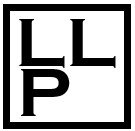Libraries Beyond CBS Sunday Morning
Over the weekend, a number of people sent us a link to CBS’s Sunday Morning piece, “Beyond Books: The 21st Century Public Library,” which aired on July 24th. It was really excellent and touched on many of the issues we raise here at the Library Land Project: libraries as centers for their communities, expanding beyond books, serving marginalized communities, the fact that they are enjoying an incredible renaissance and more. There are two things we wish had been explored, however. The first is the amazing work of rural libraries, and the second is libraries’ role in protecting intellectual freedom - even the parts some people wish weren’t protected.
When one thinks about public libraries, it’s natural to think of some of the marquee metropolitan ones. Austin, Boston, Los Angeles, New York, and San Francisco all come to mind, as well as they should! These are showpiece libraries and offer every resource and service imaginable. They’re at the leading edge of librarianship, and to visit one is to be amazed. In most cases, these libraries are well-resourced in terms of funding, staffing, and their collections. They are also very similar in some respects and can genuinely claim to be all things to all people. It’s pretty fantastic.
In our experience, though, it is often rural libraries that really show their mettle. They don’t have the luxuries of their city cousins. Resources and services need to be reflective of the needs of the communities they serve. Our visits to many of them, including Garden Grove, Iowa; Monterey, Massachusetts; and Rutland, Massachusetts, have been among the most moving and meaningful we have done. We’ve seen and heard firsthand just how great an impact these libraries can have. In Rutland, it still boggles the mind that this library in a town of 9,000 was a vaccination site that served more than 100,000 people!
It would have been great for the CBS audience to have heard about these types of libraries as well.
As more things become digital, they can also become more ephemeral and harder to manage. Library materials - from ebooks to audiobooks to movies and even books themselves - are sometimes not owned by the libraries that lend them. Often they are licensed with all kinds of rules and restrictions placed on the item. It’s great to access and use them, but it’s important to reflect on the fact that someone other than the local library may have the final say about their place in a collection.
Speaking of collections, protecting their integrity has also become a huge issue. Dangerous and sickening efforts are underway to limit and control what information a library can provide. This is taking the form of material challenges, which have always been a thing but are now accelerating at breakneck speed.
While libraries need to reflect and meet the needs of their communities, that does not mean suppressing information that some community members might find objectionable. As the librarian Ranganathan observed almost 100 years ago, for every reader, there is a book, and for every book, there is a reader. Demanding books be pulled from shelves violates this fundamental principle of library science and should not be tolerated.
Unfortunately, it is more than tolerated by some. In fact, removing books, restricting ideas, and limiting intellectual freedom have become something of a mania among the far right. We’ve seen what’s happening in Vinton, Iowa, where LGBTQ materials - and staff - are being challenged, and it’s happening in New Jersey, Texas, California, and everywhere in between.
Not willing to follow resource reconsideration policies to accomplish their small-minded and anti-intellectual ends, people behaving in homophobic, racist, misogynistic, and other hateful ways have sought to rewrite the rules. By running for boards of trustees - often with zero experience, consideration, or care of what libraries stand for - they are attempting to reimagine libraries in a way that is antithetical to what libraries are all about: providing free and equitable access to information and the skills and tools to put that information to use.
Rather than embracing the diversity of thought, they seek to narrow it to fit their limited comfort zone. Rather than accepting that some legitimate ideas and opinions differ from their own, they seek to clamp down and control what we can read and know - and even what librarians can say!
Anyone making these arguments is no friend of public libraries, free speech, or the First Amendment. People who value the free flow of ideas must recognize that this kind of censorship has no place in America. And yet, this perverse thinking is on the rise. These are dispiriting developments, and intellectual freedom fighters have to be willing to stand against them.
It would be good if CBS - and other news outlets - would spend more time exploring the underlying issues.

